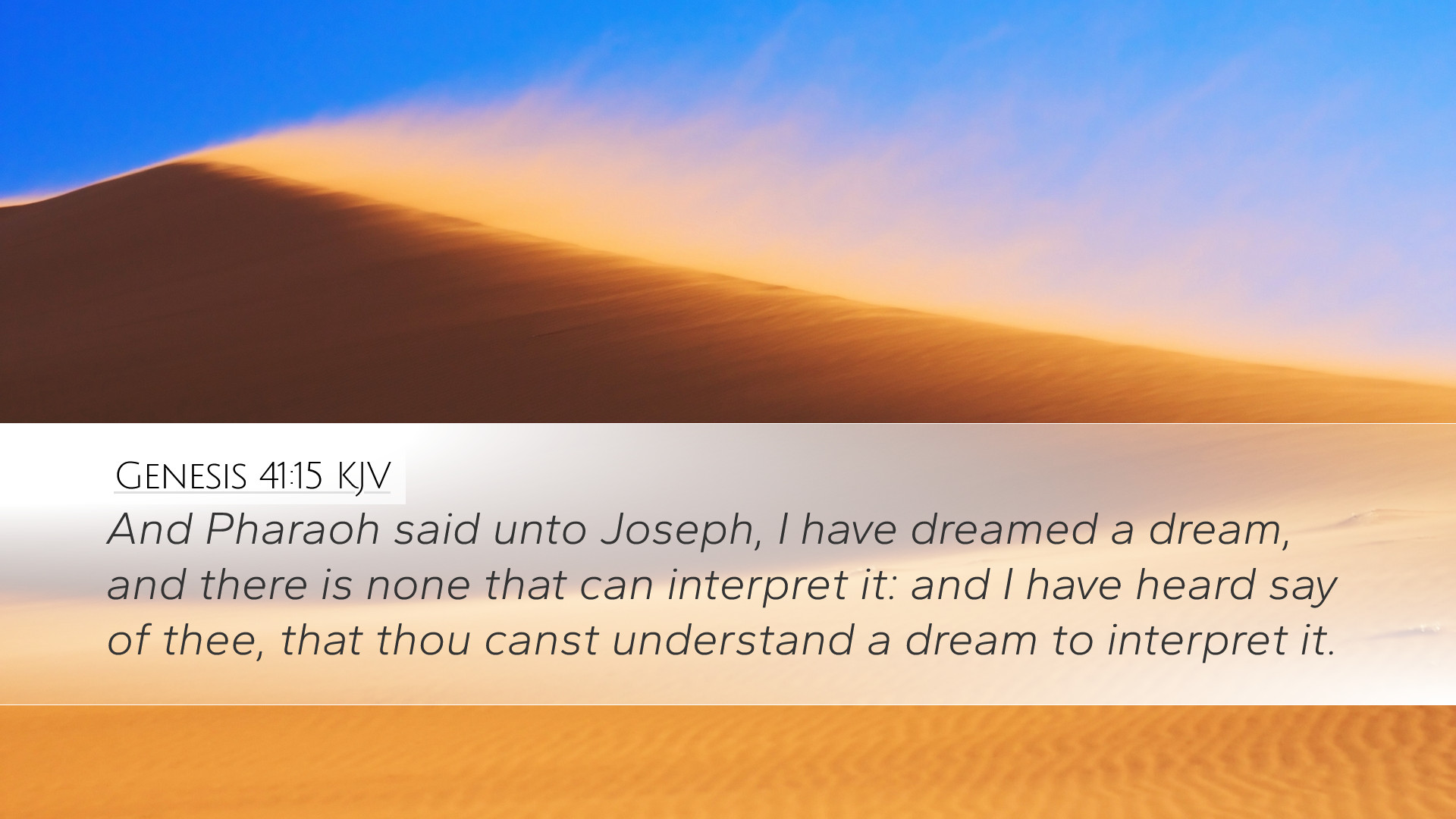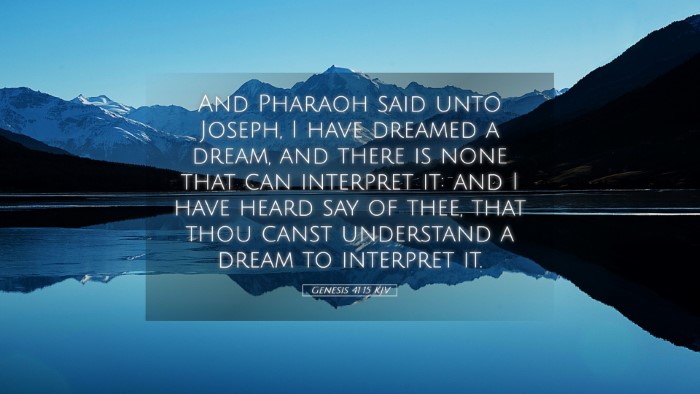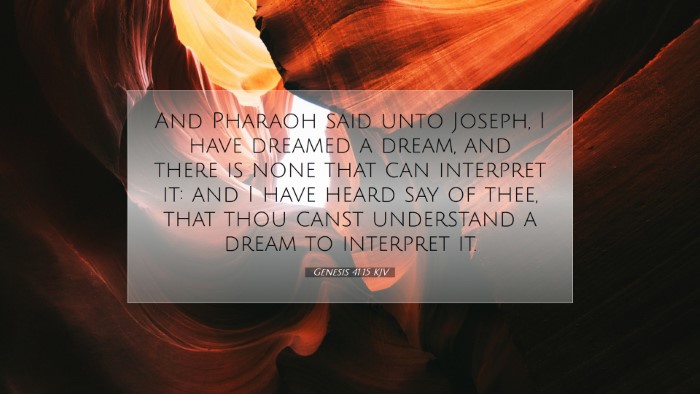Commentary on Genesis 41:15
Verse: "And Pharaoh said unto Joseph, I have dreamed a dream, and there is none that can interpret it: and I have heard say of thee, that thou canst understand a dream to interpret it."
Introduction
This verse marks a pivotal moment in the life of Joseph, showcasing God's providence and the unfolding of His plan for Israel. In this brief dialogue, we observe Pharaoh's urgent need for interpretation of his dreams, a theme central to the narrative of Genesis. Various public domain commentaries provide insights that deepen our understanding of this moment.
Context and Background
As Genesis unfolds, we find Joseph in a position far removed from his earlier life as a favored son. Sold into slavery, imprisoned, and now poised before Pharaoh, Joseph is about to see God’s purposes manifest. Pharaoh's dreams are not mere nocturnal visions but divine revelations concerning the future of Egypt. They symbolize coming abundance and famine, vital for Joseph’s rise to power.
Pharaoh's Dilemma
Matthew Henry notes that Pharaoh’s admission of his helplessness before his dream underscores a common biblical theme: human limitations in the face of divine mysteries. Pharaoh's despair highlights the inadequacy of his magicians, which sets the stage for Joseph’s introduction as God’s instrument.
Joseph's Reputation
Albert Barnes emphasizes that Joseph's fame as an interpreter transcends mere skill; it is a testament to God’s work through him. Pharaoh’s declaration, “I have heard say of thee,” illustrates the intersection of secular power and divine purpose, showcasing how God orchestrates events for His people.
Theological Insights
Divine Providence
Joseph’s journey reflects the broader theme of divine providence, where God prepares and positions His servants for critical tasks. Adam Clarke eloquently states that Joseph was not merely a passive observer; rather, he was being trained for leadership through his trials.
God's Sovereignty
This moment emphasizes God’s sovereignty over worldly affairs. Joseph’s ability to interpret dreams is not by his own power but is a gift from God. Thus, it reminds believers that true wisdom and understanding come from the Lord (Proverbs 2:6).
Application for Faith Communities
Trusting in God's Timing
For pastors and theologians, Joseph’s timeline serves as a reminder of God's timing in our lives. Even when circumstances seem dire, God is working behind the scenes to bring about His purposes. Believers are encouraged to remain faithful, as God’s plans unfold in due time.
The Role of the Faithful in Society
This verse calls attention to the role of believers in the secular world. Joseph’s interpretation of dreams not only brings about personal elevation but also serves a greater societal purpose—saving a nation from impending disaster.
Commentary Conclusions
Importance of Divine Revelation
In conclusion, the interaction between Pharaoh and Joseph illuminates the necessity of divine revelation in understanding life's complexities. The faithful must seek God with the same urgency that Pharaoh demonstrates, recognizing that God holds the keys to wisdom.
Joseph as a Type of Christ
Lastly, Joseph's life foreshadows the ultimate Redeemer, Jesus Christ, who interprets the deepest sorrows of human existence and offers hope. As Joseph stood before Pharaoh, so Christ stands before the world, offering insight and salvation.
Final Thoughts
Genesis 41:15 speaks not only to the historical narrative but also resonates with ongoing themes in the Christian faith. As believers study this text, they are reminded of God’s intricate work in their lives and the importance of being vessels for His purposes.


